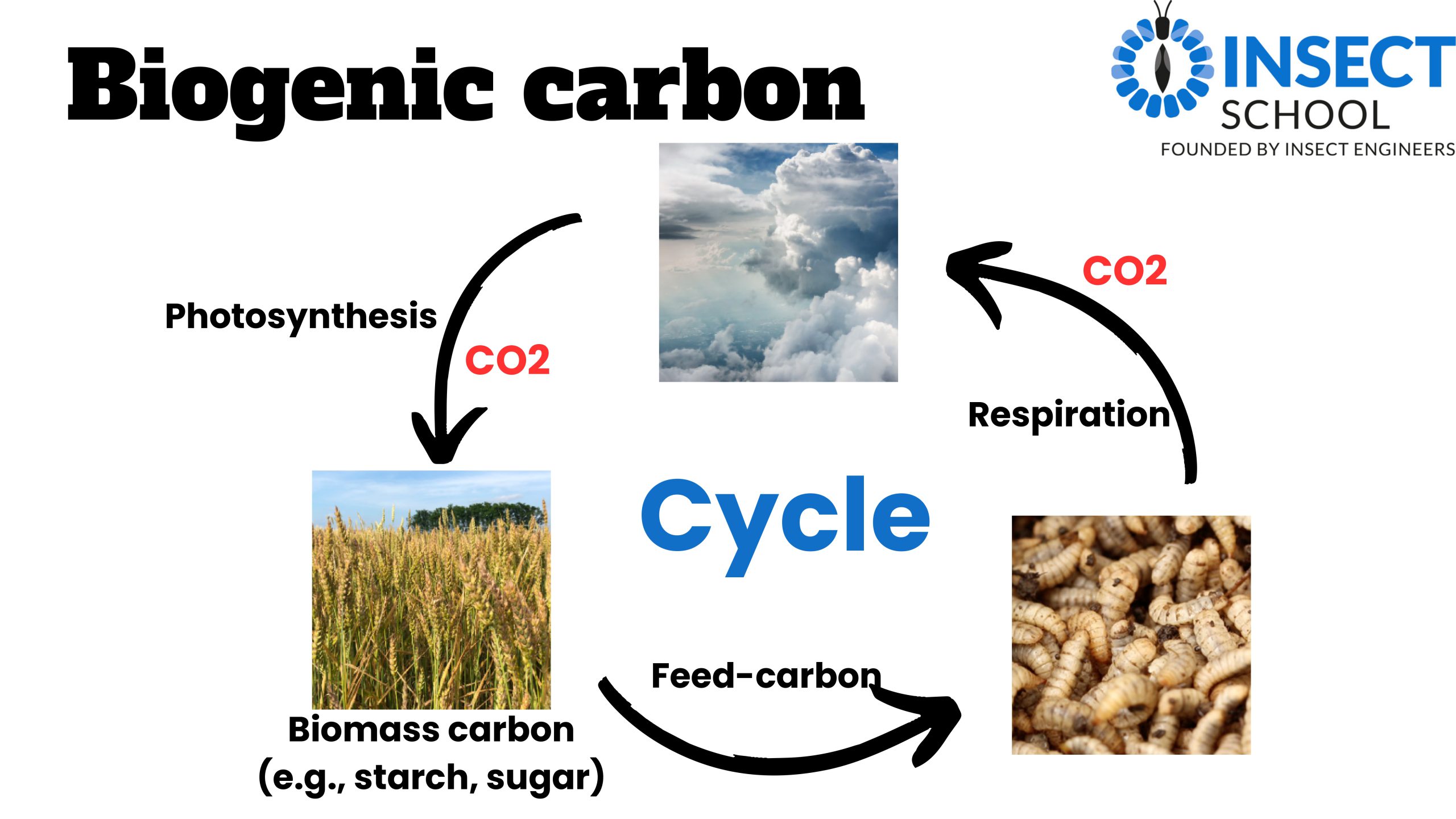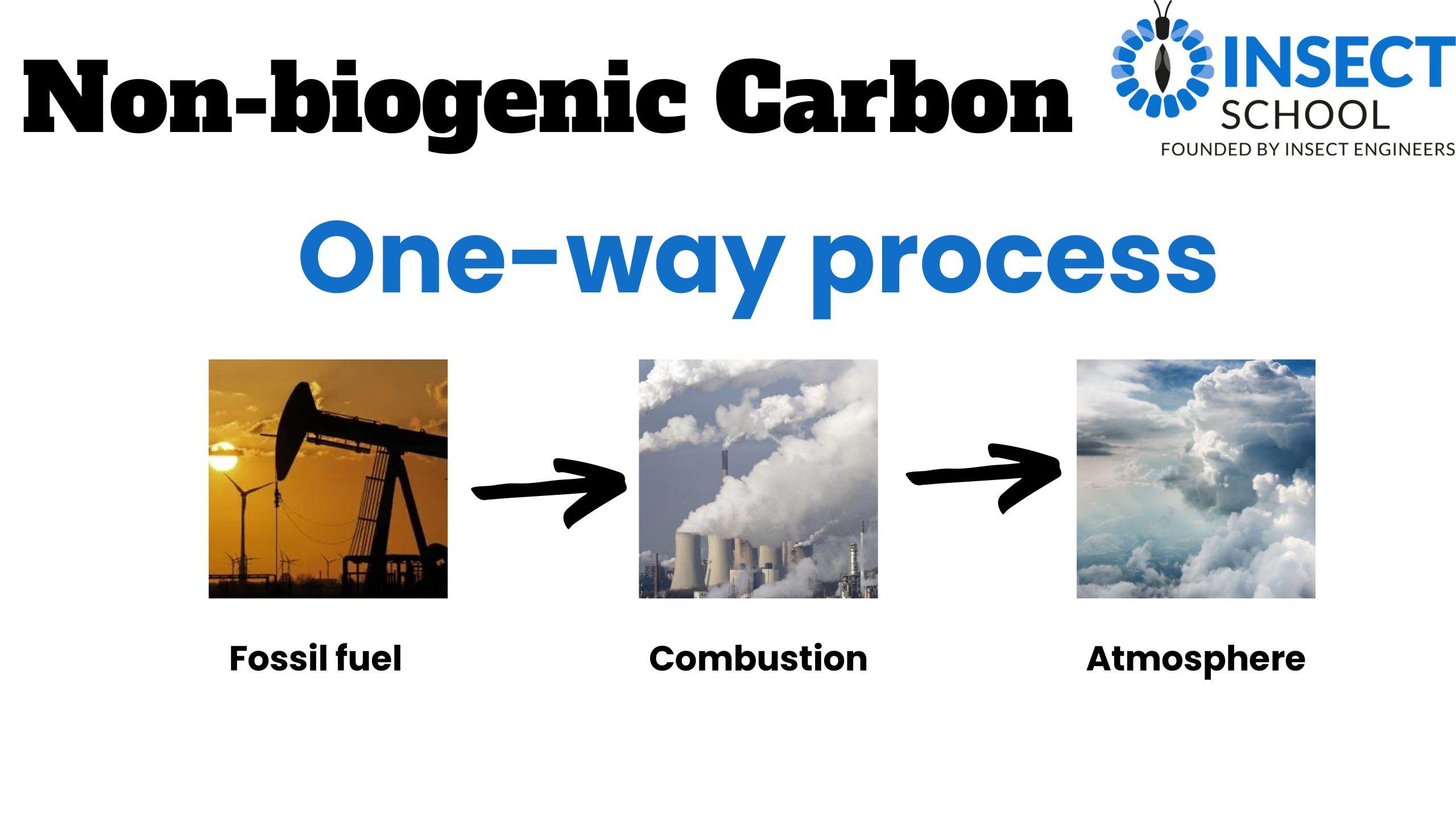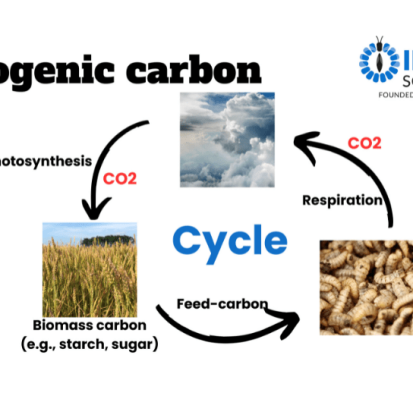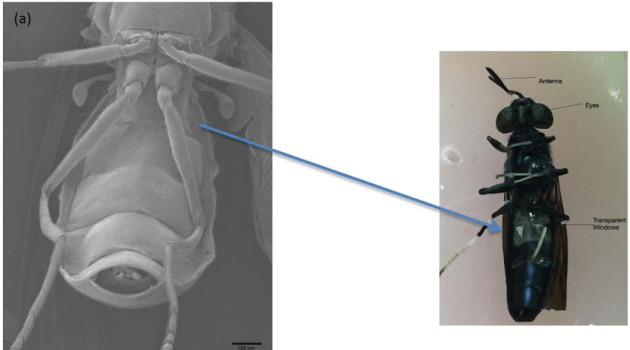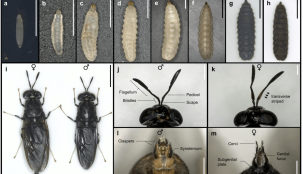Why is BSF respirational CO2 (direct emissions) Carbon Neutral?
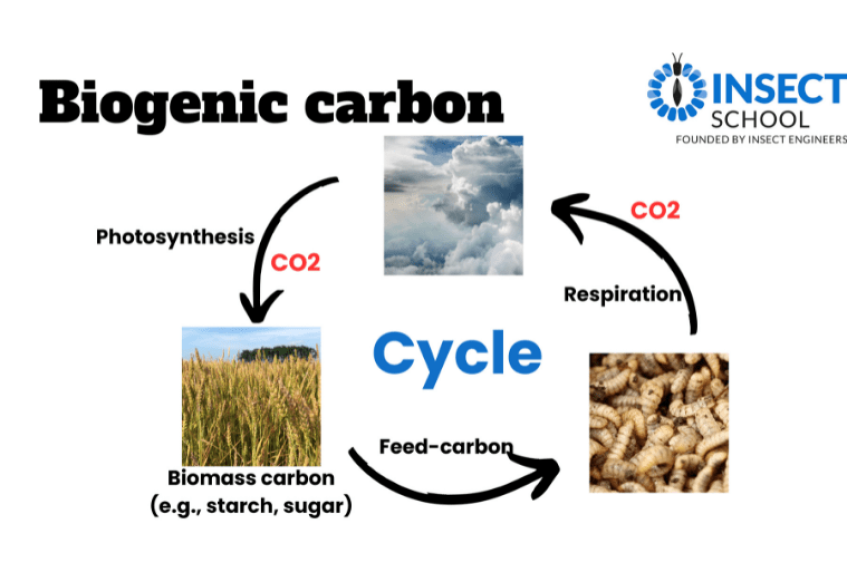
Why is BSF respirational #CO2 (direct emissions) #CarbonNeutral (e.g., #Zero #GlobalWarmingPotential)?
Respirational CO2 (direct CO2 emissions) are not considered to contribute to global warming. The main reasoning behind is that the CO2 released is part of natural carbon (also called #biogenic-carbon) cycle and removed from the atmosphere by photosynthesis. Thus, respirational CO2 does #not contribute to a net increase in atmospheric carbon.
E.g., larval feed (e.g., wheat bran) is original from plant cultivation while its carbon-biomass forms via photosynthesis (e.g., absorb CO2 from atmosphere). When BSF larvae digest feed and release CO2 to the atmosphere. Meanwhile, plants are re-cultivated and absorb CO2 from the atmosphere. This CO2 is recycled and does #not add new carbon to the atmosphere. Thus, respirational emissions are theoretically carbon neutral.
By contrast, non-biogenic carbon is regarded as the emitted carbon from
fossil fuels in the form of oil, coal, and gas. Non-biogenic carbon takes >1000 years to form fossil fuels because of extreme atmospheric pressures. Combusting fossil fuels and releasing their stored carbon in a matter of hours, days or weeks is unsustainable from an environmental perspective and adds new carbon that contributes to long-term global warming.
